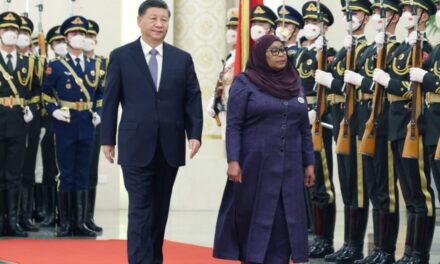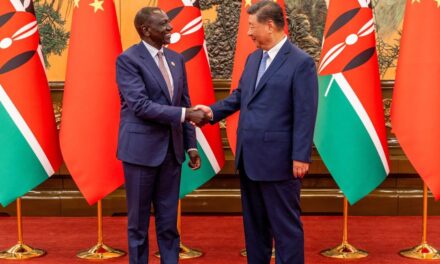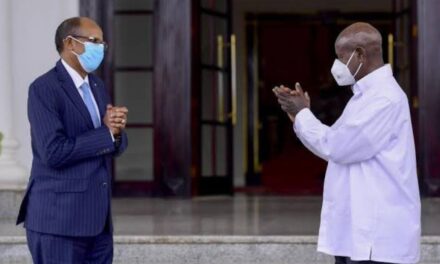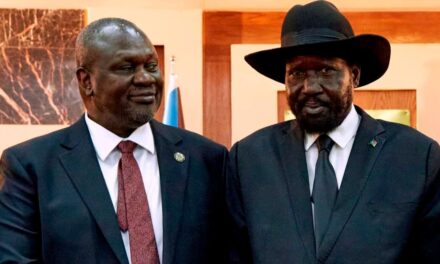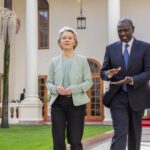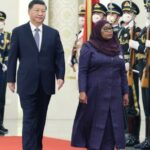

Kenya Criticised for Abstaining on UN Vote to End Israeli Occupation
| September 18, 2024

Kenyan President William Ruto prayed at the Western Wall, Israel, 9 May 2023. Photo: Handout
Kenya has faced accusations of abandoning Palestine in its hour of need by abstaining from a recent UN resolution that calls for Israel to end its “unlawful presence in the occupied Palestinian territory” within 12 months.
The resolution, passed during the General Assembly’s 10th emergency special session on Israeli actions in occupied East Jerusalem and the broader Palestinian territories, garnered 124 votes in favor, 14 against, and 43 abstentions.
This move by Kenya comes months after Nairobi had voted in favor of upgrading Palestine’s status in the UN, only to “abandon Palestine in its hour of need,” according to a Kenyan diplomat who spoke anonymously.
Interestingly, in October last year, Kenya referred to Israel as a “punishing occupation” and urged Tel Aviv to “adhere to international humanitarian law and the laws of war today, so that it can maintain the legitimate opportunity to negotiate peace tomorrow.”
A Kenyan diplomat explained that “Kenya typically abstains from country-specific resolutions,” but this hasn’t always been consistent, if Kenya’s firm condemnation of Russia’s invasion of Ukraine is something to go by.
Though Kenya maintains an official policy that supports a two-state solution to the Israel-Palestine conflict, based on the pre-1967 borders, the recent abstention has been interpreted by some as tacit consent toward Israel’s actions.
Under former President Uhuru Kenyatta, Kenya was a vocal supporter of the Palestinian cause, backing several UN resolutions critical of Israel, including condemning Israel for human rights violations in the occupied Palestinian territories at the UN Security Council.
However, the change in leadership in September 2022 seems to signal a shift in Kenya’s stance on the Israel-Palestine conflict, as observed in Kenya’s actions at UN bodies under President William Ruto’s administration.
In November 2022, Kenya voted in favor of Palestine’s request to the International Court of Justice (ICJ) for an advisory opinion on Israel’s occupation of Palestinian territories.
But just a month later, Kenya reversed its position and voted against Palestine’s request for an ICJ opinion on the legal consequences of the occupation, a move widely criticized by foreign policy experts.
A senior foreign diplomat in Nairobi highlighted these inconsistencies in Kenya’s policy, suggesting that the country’s diplomacy might be shifting toward a “transactional” approach.
The diplomat questioned whether Kenya was being “bullied” by external powers on the multilateral stage, noting that Kenya’s historically firm stance on sovereignty appears to be wavering.
At the African Union summit in February 2023, Israel sought re-admission to the continental body as an observer.
Nairobi did not object to this request, despite the African Union issuing a strong statement condemning Israel’s alleged mistreatment of Palestinians.
Israel had previously held observer status at the Organisation of African Unity (OAU), but efforts to regain this position after the OAU’s dissolution in 2002 were long thwarted.
The African Union has consistently called on member states to cut scientific and cultural ties with Israel until it ends its “colonial” practices against Palestine.
Kenya is currently bidding for leadership of the African Union Commission, with Raila Odinga as its candidate for chairperson.
Odinga has been critical of Israel in the past, calling for an end to the occupation.
The African Union has been a staunch supporter of the Palestinian cause for decades, regularly giving the Palestinian leader a platform to address the body.
Here’s how the countries bidding for the AUC chair voted on the recent resolution:
Kenya: Abstaine
Djibouti: In favor
Mauritius: In favor
Madagascar: Absent
The UNGA resolution demands that Israel end its occupation of Palestine within the next year.
Israel’s closest ally, the United States, voted against the resolution, along with Malawi, which has recently strengthened its ties with Israel, including sending Malawian laborers to work in the country.
The resolution also called for Israel to “comply without delay with all its legal obligations under international law.”
Among the African nations that abstained were Rwanda, Liberia, Cameroon, Ethiopia, and Kenya.
Your support empowers us to deliver quality global journalism. Whether big or small, every contribution is valuable to our mission and readers.


